For CS247B this quarter, our team is interested in studying the practice of giving and receiving compliments and how that leads to positive thoughts. We want to understand how students feel when they receive compliments and how often and in what situations do people feel comfortable giving compliments. We reviewed a variety of apps from anonymous compliment apps to gratitude journaling apps to apps that deliver daily positive affirmations. In order to understand the space, we wanted to consider all solutions that could lead to positive thoughts.
Gas, app
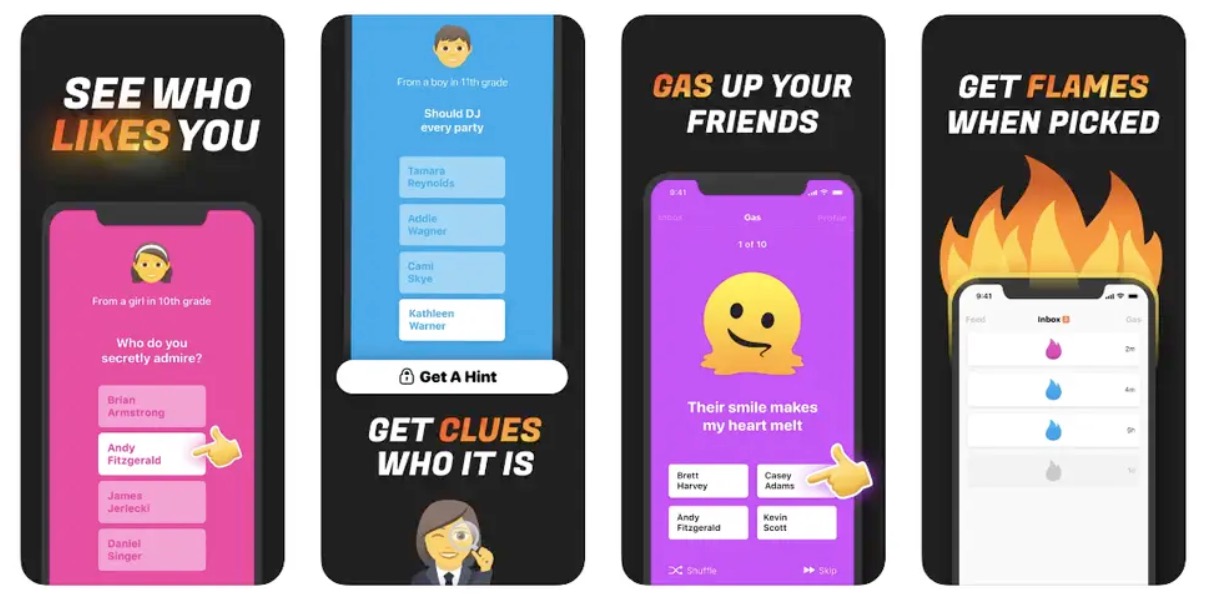
Gas is a poll-based app that allows friends and contacts to share compliments with each other. The app is designed to give anonymous compliments and positive affirmations. In order to gas someone up, users vote for things like the most beautiful person they have met or if (blank) asked me out on a date, I’d say yes. On Gas, users are not allowed to create their own content primarily because the app is geared towards teenagers and they don’t want compliments turning into cyber bullying. The compliments are written by the creators and aim to be uplifting and positive. There is a subscription upgrade to the app called “God Mode” that reveals extra information in the polls, allowing the app to be monetizable.
The app does an excellent job of getting people excited about giving and receiving compliments, through celebrating compliments received and underscoring the impact users can have on their friends by participating in the compliment quizzes. Some downsides are that users could possibly get addicted by consistently checking to see if they received a compliment. This app also could lead to users feeling bad if they don’t receive compliments. However, the company stated that “over 95 percent of users who add friends receive a compliment within their first day of signing up”. The biggest product differentiator is that the market is niche as it’s geared towards high school kids and communities. Even though the market is relatively small, they have complete control over it and have monetized the experience. The app hasn’t reached college users which is who we have been considering as our target user, but it’s helpful to see an app focused on giving and receiving compliments reach success as it helps validate our behavior change. The app was just acquired by Discord. Unique value: a targeted, niche target audience that controls the high school market.
Slay, app

Slay is an up and coming app out of Germany who just raised their seed round. The platform is aimed at a young target group and wants to spread and reinforce digital wellbeing through positive social media interactions. They hope to normalize the giving of compliments and spread love and positivity through their app. When a user opens the app, Slay asks them twelve questions, which they answer by giving an anonymous compliment to another user that is a friend or in a similar group. Those who answer the twelve questions are then able to see the compliments that they have received from people in their social circles. This is a strength of the app, as it cleverly incentivizes users to give compliments–if they don’t give compliments, they won’t be able to receive any. Example questions include “Who inspires me to do my best?” and “Who has the best sneaker game?”
Users choose from four options from their school and social groups to pay a “slay” to. The idea of targeting schools is similar to Gas, but there is also the option to expand outside of that circle. The identity of those who sent the compliment remains hidden and content questions are created by the app not the users. This is a downside of the app–as users are not able to come up with their own compliments, they are limited in what compliments they can give to others. Users don’t have the option of sharing deeper thoughts with their friends, as all of the compliments generated by the app are more surface-level. Our solution will encourage delivery of these more meaningful compliments, and allow for creativity among users to come up with their own personalized compliments for people in their network. Unique value: market-share in international markets and wider target audience with internal incentives to give more compliments.
Emi, app

Emi is a new dating app geared towards helping people improve their relationships. The app generates daily compliment prompts like “Make your partner feel good with a physical compliment. Fill in the blank: You look [blank]”. Emi works best for partners in long-term relationships. When you are not seeing your partner as often, it can be nice to get a reminder to think about them, and likewise to receive a compliment from your partner at a random point throughout the day. However, because Emi is integrated with text–users receive prompts via text, and then are expected to message their partner via text. This means that the compliments can feel unnatural and out of place. If two partners were in the middle of a text conversation and one received a prompt, then the user would have to either 1) disrupt the flow of conversation to give out the compliment or 2) ignore the prompt and likely forget about it.
Many of us like to receive a compliment because someone noticed something about us and then decided to compliment us, not the other way around. In other words, if someone says that they like your shirt, likely you want it to be because they just happened to notice your shirt, not because they were explicitly looking at your outfit for something to point out. In the latter case, do they actually like your shirt, or is it just the best out of all of the things you’re wearing? While this solution focuses on romantic relationships, our solution will target a much broader audience to encourage the exchange of positive thoughts and compliments among different types of relationships. Unique value: strengthens romantic relationships by sparking positive exchanges through text.
ThinkUp, app

ThinkUp is an app that generates daily positive affirmations for users. Affirmations can be from a variety of different categories (self-esteem, mental health, manifestations, motivation, etc.) to bring more positive thoughts into the user’s life. There are options to record yourself saying affirmations, play music, and track your progress of reciting affirmations. This app focuses on creating positive thoughts for yourself, about yourself, which is great for promoting self reflection and increasing self-esteem. ThinkUp is not a social media app–you work to develop the positive mindset you need to be successful in your life by building yourself up. While positive affirmations and self-talk are simple, effective techniques to becoming happier, we are more interested in studying the spreading of kindness. How can your words positively impact someone else’s mindset, and how does boosting someone else’s mood affect your own? Unique value: become more positive from within, rather than through external validation.
Compliments, app

There are hundreds of compliments on Compliments available for users. Users just tap the screen, and a new compliment appears for them to enjoy. For individuals experiencing symptoms of depression or low self-esteem, this app can work to bring more positivity into their lives. The main downside of this app is irrelevancy–not all of the compliments are relatable for each user, and because each one is generic, they don’t hold much validity. Just because your screen tells you that you look beautiful today, your screen can’t see what you look like, so what does it know? An advantage of this app is the ability to put in your own compliments that then become a part of the app’s database. This means that the compliments you put on the app will be distributed to other users. This provides users the experience of spreading kindness more broadly, as their compliments are being received by strangers that they otherwise would not have the chance to connect with. On a surface level, the more compliments you input into the app, the more kindness you are spreading. We are interested in creating a solution with more targeted, relevant comments. While we have not decided on the inclusion of anonymity, we want users to at least feel like the compliments they’re receiving are real, based on the fact that they’re from someone they know, or at least someone who has seen them in real life. Unique value: spread and receive large amounts of compliments, anonymously.
Gratitude, app

Gratitude is a journaling app that encourages users to develop a habit of gratitude journaling every day by sending reminders with prompts. This app is among the most popular journaling apps because along with the journal, the app also includes affirmations, vision boards and daily motivational content. It is meant to aid in maintaining a self-love and self-care routine. The app wants to encourage positive thoughts and remind users not to lose sight of what and who they are fortunate for. With these tools, they hope to help users change perspective to focus on what is good in their life.The app does not currently prompt you to share positive thoughts with friends or families and we want to create a solution that helps you share. We hypothesize that by constantly thinking about what you are grateful for, you are reminded how amazing the people around you are and are more likely to give compliments to share how much you appreciate someone. The idea of gratitude journaling can be incorporated as a possible direction for our intervention study. Unique value: guided and curated prompts for journaling with unique goal of creating self-care habits.
Kwippy, app
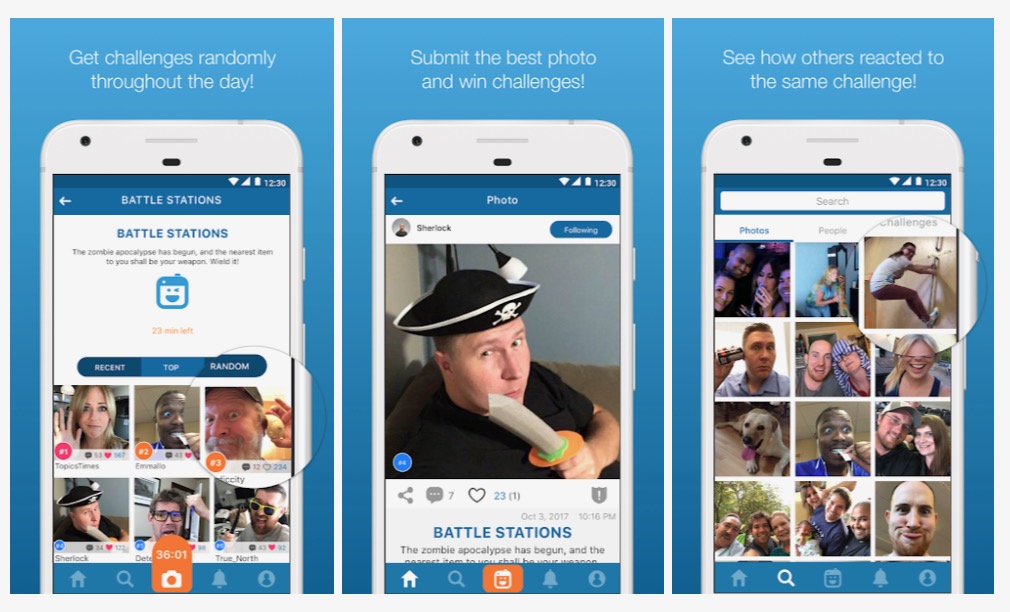
Kwippy is a social media app that sends you random challenges throughout the day that prompt you to take a photo of something in your environment. You can engage with your friends’ posts by commenting or voting on them for best capturing the theme. One of Kwippy’s main ideas is that affirmations that come from other people can be more powerful than one’s you give yourself. So, while prompts force you to recenter yourself and be present in the moment, affirmations from others are what provides real motivation. Kwippy provides a lighthearted, lively community focused on positivity. However, all opportunities to compliment friends on Kwippy are prompted by the person receiving the compliment. In other words, when you post something to engage with a challenge on Kwippy, you are asking to be affirmed by others. Furthemore, these affirmations are more surface level as they are commenting on a single photo–there is no opportunity for the exchange of deeper, more meaningful positive comments, which we are interested in exploring. Unique value: a community of kindness built on fun; gamification elements and photos emphasize focus on overall happiness.
Ask.Fm, app and website

Ask.fm is a digital platform to ask and answer questions from people you find interesting including friends, crushes and strangers. It can be accessed by people all around the world on computers and smartphones. It exploded in popularity in the early 2010s with middle and high school students as the main market. Users can ask questions and post answers on their profile anonymously or with their identity attached. The answers can be liked, sent to other people and replied to. While apparently started to create a place where young people could ask each other the questions that are shaping their world, the app has faced a lot of criticism because it is widely known among young people as a harbor of cyberbullying. Because of this, there is now content moderation and user suspension.
The app can be used to spread positive thoughts, share crushes and send compliments as well. Even though it’s not meant for people to give compliments to each other, the anonymity and seemingly “safe” space allows for people to share honest, positive thoughts. To combat potential bullying and harassment, our solution will allows users to “block” compliments from identified individuals to ensure they are not receiving unwanted compliments. This is especially important as users on our platform will be able to come up with their own compliments–there will be no technology to determine if what they are writing is actually a compliment, versus a mean comment. Unique value: ability to ask and answer completely anonymous questions and was one of the first players in the market.
Fizz, app
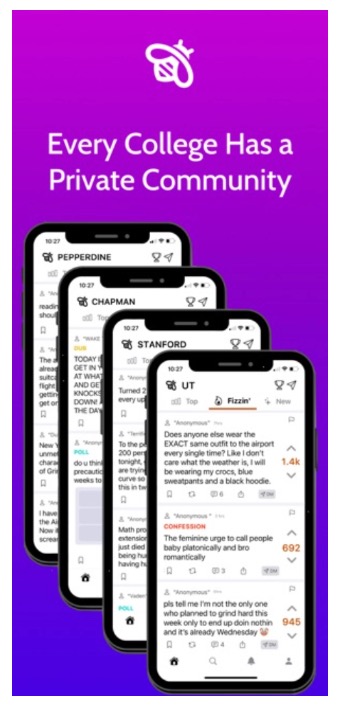
Fizz is an application that started out of Stanford University with the goal of hearing what your community has to say. It is limited to people with .edu emails from universities around the US. The only community that users can access is the community that they are part of, creating mini-fizz ecosystems depending on location and email verification. On the app, users can publish anonymous text posts, photos, memes and polls which can be upvoted or downvoted by fellow students. There is also a comment section on each post as well as an option to DM each other if people choose to reveal their identity. Every college community has peer moderators to ensure that posts are appropriate. The app is mainly used in social contexts and has its fair share of crush confessions and compliments, but it’s main purpose is not to give compliments. It creates a sense of a social community online, but it can lead to more FOMO (fear of missing out) and a lot of what is posted does not necessarily lead to positive thoughts. We intend to focus specifically on positive thoughts and compliments, to harbor a community of kindness and positivity. Unique value: closed and targeted private communities with peer moderators.
Compliment Circles, activity

Compliment circles are elementary activities most commonly done in educational settings. Its purpose is to create an environment of respect and kindness while strengthening the foundation of a newly formed team or group. Everyone sits in a circle with their legs stretched out, and one by one, people volunteer to give a compliment to someone in the circle. Each time, the receiver pulls their legs back. This continues until everyone gets a compliment. Each time this activity is repeated, folks are encouraged to move from surface level compliments about someone’s appearance (e.g., “I like your …”) to those that highlight the individual’s character (e.g., “You are …”).
A strength of this activity is that it ensures everyone receives an equal amount of compliments. As everyone has to receive a compliment, this activity promotes compliments that feel forced and inauthentic. This may mean that the first few compliments are genuine, but the last few are just given out to end the activity. If you are the last one to pull your legs into the circle, you can be left questioning why it took so long for someone to come up with a compliment for you, which can feel worse than if you just didn’t get a compliment at all. Furthermore, this activity ignores the spontaneity of compliments, which is part of what makes them feel so good to receive. While this activity’s goal is to teach folks the importance of spreading kindness, it is difficult to measure its long term effects. We want to create a solution that embraces the spontaneous aspect of compliments, and builds a lasting habit for users around spreading kindness. Unique value: building a strong foundation for new teams through a short, direct activity.
Mapping Our Findings
We created a comparative matrix to identify an open area of the market to target.

Competitors are slightly balanced across giving versus receiving compliments. A slight focus on giving is likely due to the fact that it is easier for products to intervene on the giving end. Prompting users to receive compliments is less intuitive. Our product plans to adhere to this model: enable more compliments received through prompting users to give more compliments.
The main differentiator for our project is encouraging the delivery of deeper, more meaningful compliments. All of the competitors that facilitate giving or receiving compliments focus on surface level ones. The solutions that focus on deeper thoughts are centered around introspection; they do not facilitate communication between users. While our baseline study revealed that giving and receiving superficial compliments–on appearance, personality, etc.–does feel good, we found that users find it difficult to express more heartfelt thoughts to people in their lives, particularly because it feels inappropriate to do so in person outside of a special occasion.

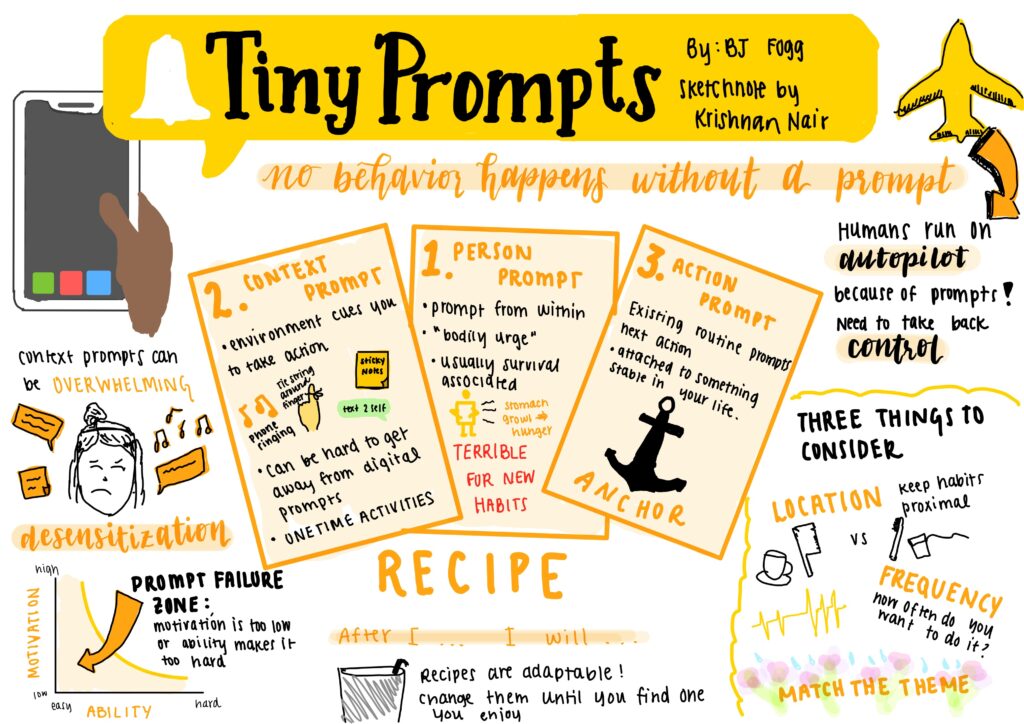
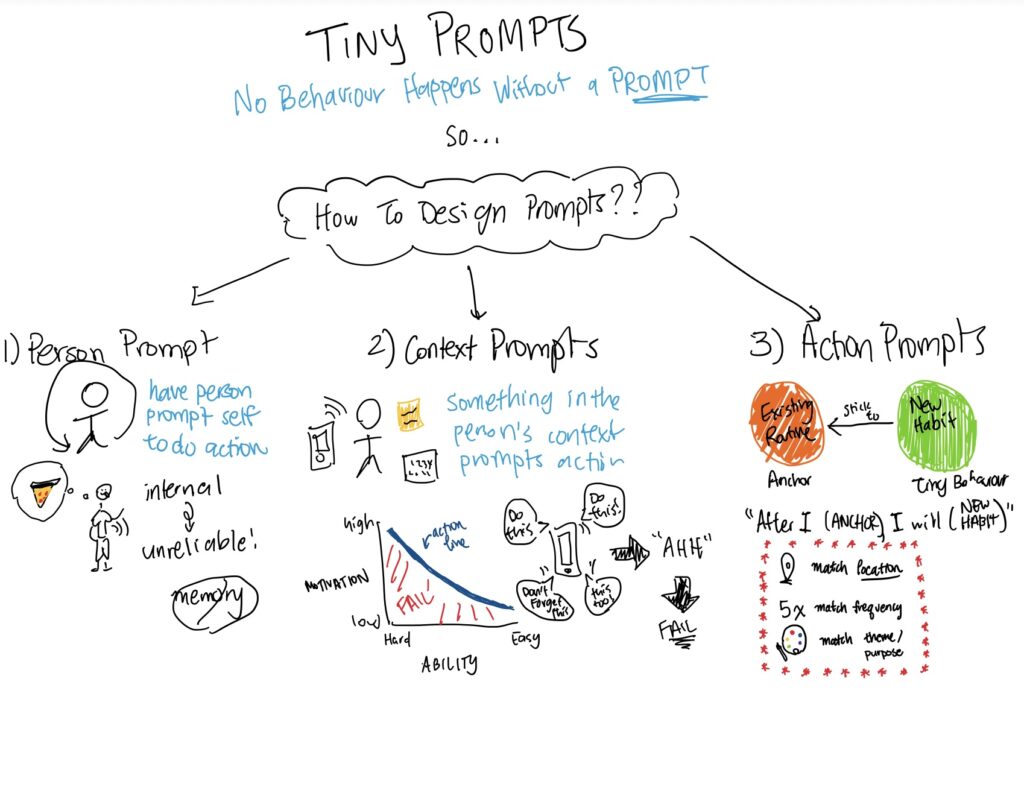
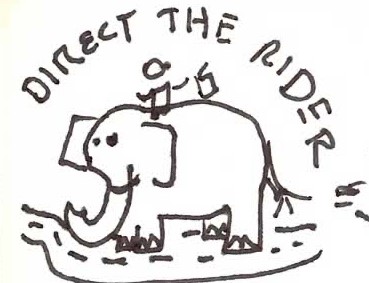
Comments
Comments are closed.